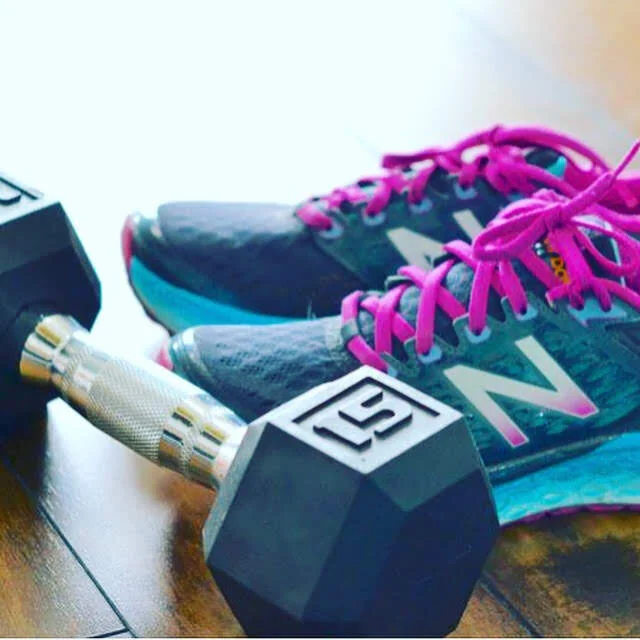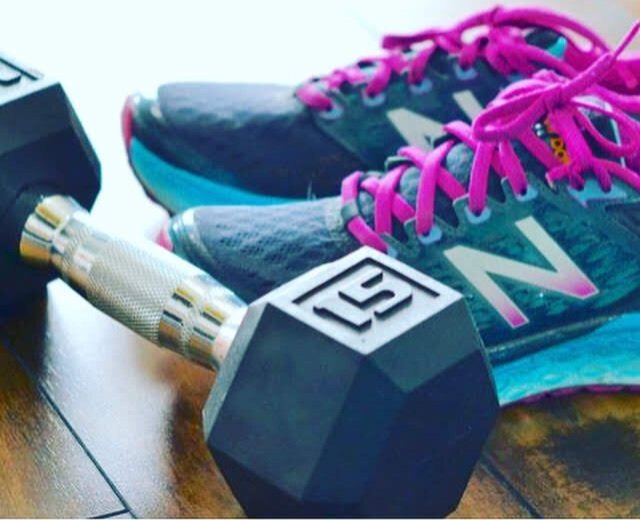I am not a huge fan of new year's resolutions.
People tend to set big goals to change their whole lives on January first, and usually, by the time February rolls around, they are back to their old habits. Have you ever tried this? Eat better: no sugar! no carbs! nothing with taste! Exercise more: one hour a day, six days a week, twice a day! But your brain revolts at the extreme change in routine, and you're back to doing what feels good in a week or so. Nothing changes because significant sweeping change is hard for humans.
I prefer to set goals with action steps all year long. Did you mess up on January third? No problem, January fourth is a new chance to get it right. The problem with resolutions is that they are usually too big, too much pressure to be perfect, and not enough allowance for unforeseen circumstances. All or nothing usually leads to nothing.
Even so, I wish I could bottle the hope, optimism, and desire to improve that many people feel in the new year. People are often ready for positive change, and it is an opportunity to evaluate habits for what can be improved. But any day of the year also offers that opportunity. Try to avoid the now-or-never trap of new year's goal setting.
In the spirit of the positive side of new year's resolutions, I put together some running resolutions that can help you improve your performance in the new year. We don't have to make sweeping changes to every area of our life; sometimes, minor tweaks to our habits can yield positive results and bring us closer to our goals. If you get it wrong one day, try again tomorrow. Failure only comes from quitting.
WARM-UP BEFORE EVERY RUN
1. A dynamic warm-up can improve performance and help avoid injuries. It only takes a few minutes to be effective and is a great habit to practice in the new year. Runners are notorious for skipping the warm-up. Be different, be better. Start with five minutes of dynamic movement before every run. Try one like this one!
PRIORITIZE REST AND RECOVERY
2. Rest and recovery go hand in hand. Sleep well, take rest days, and lots and lots of low-intensity days. Recovery is the piece of the puzzle that makes you a better athlete. If you don't recover, you don't improve. It's often overlooked or minimized in favor of more workouts, but proper recovery will improve your performance, reduce your injury risk and make running more enjoyable all around. How can you improve your habits to maximize recovery with adequate rest or more sleep?
BE CONSISTENT
3. Aim for consistency over sustained hard effort throughout the week. Take it easy some days, push hard on others, but stick to your commitments if you choose to make training a priority in your life. It may mean lowering the intensity or shortening the duration if you need a break outside your scheduled rest days. I give myself a fifteen-minute rule for those days I don't feel like working out. Give it fifteen minutes; if I am completely miserable, I can stop. Most of the time, once I get started, I feel good enough to finish the workout.
LIFT WEIGHTS
4. Seriously, runners, resistance training is a game-changer for running and life! Want better times, less chance of injury, better body composition, and to become stronger, physically and mentally? There is no substitute for strength training. Try just 15-20 minutes every other day to start. Need ideas? Start with this article on three strength training exercises every runner should do. Or try my ridiculously inexpensive 5-day strength training for runners challenge.
STOP COMPARING
5. Your training should be at your pace, and no one else cares as much as you do at how fast or slow you run. My fast pace might be your slow pace or vice versa. We should be training according to our bodies needs, based on experience, age, recovery needs, and goals, The paces of our social media friends are irrelevant to our training.
It's ok to compare your past performances to the present day to improve, but be careful about comparing yourself today to your college track glory days. As we age, we change, we gain a lot of wisdom, but our bodies may lose some of the abilities of younger runners. Run in the body you are in today. It's enough! How does this improve your running performance? By focusing on yourself and your abilities, you remove the distraction, unnecessary mental stress, and possible injury risk prevalent when trying to keep up with other runners.
EAT TO PERFORM
6. Eat! Eat! Eat! Runners need fuel to perform and to recover! Be mindful of what you consume, but be very careful of the slippery slope of restricting calories while training! Underfueling leads to poor performances and potential injuries over time. You may be able to get away with it for a period, but it always catches up with you. Don't be afraid to fuel! Aim for a serving of healthy carbs and protein around your workouts.
SLOW DOWN
7. Stop racing every workout. You'll get better results with an 80/20 approach. 80% of runs at an easy effort! Why? It allows better recovery at a higher volume! Higher volume running can lead to faster paces overall. The catch is if you run too much, too soon, without proper recovery, you can risk overtraining or injury. If you slowly add low-intensity miles to your weekly schedule, you can increase your volume without too much risk. The harder the effort, the more time your body needs to recover. So if every run is challenging your recovery systems, you never get the opportunity to improve. What does easy effort mean to you? If you can talk in full sentences (or sing the alphabet) without taking large gasps of air between words, you are probably running at an easy effort.
TAKE ACTION
Which of the above do you think will help you improve your running performance the most? I'd look at what you are not doing and start with one new habit or lifestyle change that will help get you there. Don't try to change everything at once. Start small, learn new habits, practice new behaviors and get used to these changes in your life. Work on a new practice once you feel confident that the behavior is becoming a habit (after several weeks, usually). Over time, the stacking of small habits can lead to those significant changes you hoped for in the new year.
Happy new year friends, I wish you an effortless stride, an optimistic mind, and the motivation to go after your running goals.
Did you like this post? Do you know someone who might benefit? It helps me when you share with your friends and followers on Facebook, Twitter, or Pinterest.
Questions? I’d love to help.

















In 2017, while working a corporate job I wrote a blog post dated five years into the future. I described my dream life in vivid detail, right down to the breakfast I'd eat and the way my business would feel. Then, I let it sit in my drafts for nearly a decade.
Reading it now in 2026 is surreal. While the timeline took longer than I imagined, the feeling of my life today is identical to that vision. I am sharing the unedited 2017 draft today as a lesson in the power of knowing your "why" and daring to write it down.